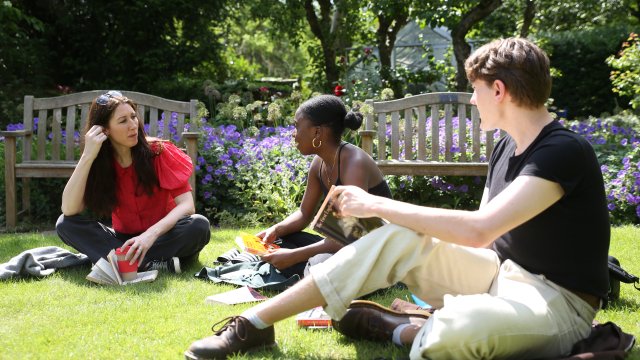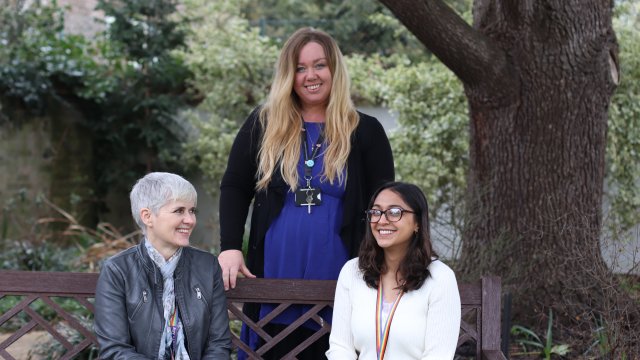
Sexual health services
The Cambridge SU's sexual health scheme provides a range of sexual health supplies including various form of contraception for free. Information about emergency contraception, which can prevent STIs and unplanned pregnancy, is available from the NHS.
For comprehensive information and advice relating to sexual health, visit the NHS sexual health webpages.
Sexually Transmitted Infections (STIs)
Proactively getting a Sexually Transmitted Infection (STI) test is a good way for sexually active adults to stay healthy. Taking a test means you can receive treatment quickly if you test positive, and that you can ensure you prevent the further spread of an STI to others.
The Lime Tree Clinic on Mill Road is the Sexual Health Clinic in Cambridge. You can find information about testing and STI symptoms on their website. The majority of STIs are treatable and it’s best to get a diagnosis and start treatment as soon as possible.
Pregnancy
If you are pregnant and you want to discuss your options, the Lime Tree Sexual Health Clinic can provide confidential advice to help you make the best decision for you. Other sources of support include your GP, College Nurse, College Tutor or the Students’ Union Advice Service. The British Pregnancy Advisory Service also provides expert advice and information.
Harassment and violence
We are here to support victims/survivors of sexual violence, which includes sexual assault, harassment, gender-based violence (GBV) and abuse. For College support and policies, please visit our Discrimination, Harassment & Sexual Misconduct webpage. You can also check the support provided by the University's Sexual Harassment and Violence Support Service.
In an emergency, crisis or if you feel at risk of harm:
- If you or someone else feel at risk right now and/or if you are injured then you can call the emergency services on 999.
- You can also visit or call the Porter’s Lodge (01223 335900) and they will be able to assist you.
If you have experienced sexual misconduct, harassment or violence:
- It was not your fault.
- You are not alone; you deserve to feel supported and believed.
- You have a choice in what you do next and what is right for you.
- You can get support from trusted friends and family and/or professional support.
- You can get support from the Sexual Harassment and Violence Advisor (SHVA) here at the University.
- You can get external support from an Independent Sexual Violence Advocate (ISVA) at Cambridge Rape Crisis Centre.
- You can go to The Elms Sexual Assault Referral Centre (SARC), for a forensic medical examination where they can store evidence for you while you make your mind up about reporting. You may be able to get support with transport to the SARC from your college.
- You can report the incident to the police if you choose to do so, including anonymously.
- You can report any incidents of sexual violence or harassment to the University; you don’t have to do this, but if you do, we can direct you to appropriate confidential support and help with any adjustments to your study.
Spiking
Key Information
- Perpetrators can spike any type of drink whether it be alcoholic or non-alcoholic and spoking can occur at public or private events such as house/flat parties.
- Anyone can be the victim of spiking, it is important that we validate people’s experiences regardless of substances that might have voluntarily consumed on the same occasion, whether this be alcohol or drugs.
- Moreover, anyone can be the perpetrator of spiking. Victims could be spiked by a stranger, a friend, a partner or potentially venue staff. There is no ‘obvious’ perpetrator.
Support and Reporting
- You can call 999 if at immediate risk or 101 if in a place of safety. Police can test blood, urine, drinks, and vomit for drugs. Substances can leave the body as quickly as 12 hours after consumptions, so this would have to be done relatively quickly.
- To read about University reporting options, please see Reporting Behaviour.
- If you suspect spiking by injection, you may also want to contact your GP or Lime Tree Clinic, Cambridge (icash.nhs.uk), to test for infections such as hepatitis and HIV.


